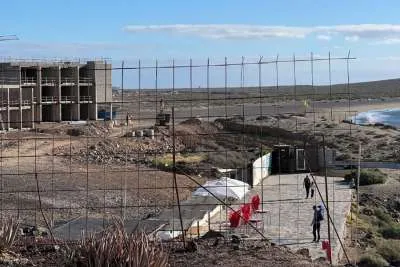Charity in Casinos: Do they really help communities?
- 28-12-2024
- Business
- collaborative post
- Photo Credit: Pixabay
Casinos have been associated with entertainment and excitement for a long time. Today, their role in communities extends beyond gambling and games, as many of them engage in charitable activities and claim to give back to the communities they operate in. But do these initiatives truly make a difference, or are they just a marketing strategy?
Understanding the impact of casino-related charity work requires a closer look at how these contributions are made and if they address the real needs of the people they claim to support. While there are many success stories, questions remain about the transparency and long-term benefits of these efforts.
THE ROLE OF CASINOS IN COMMUNITY DEVELOPMENT
The gambling industry often emphasizes its role in supporting community initiatives alongside providing entertainment. Online platforms such as cazinouri.co.uk serve as guides for Romanian players exploring UK casinos and reflect the industry's effort to connect with a wider audience. At the same time, casinos also highlight their charitable contributions as a way to demonstrate their commitment to social responsibility.
This interplay raises questions about the depth and effectiveness of these initiatives. From direct donations to partnerships with local organizations, they aim to demonstrate a commitment to giving back. However, this raises an important question: are they genuinely impactful or primarily designed to improve public perception?
HOW CASINOS CONTRIBUTE TO CHARITY
Casinos often contribute to charity in several ways, including direct donations, hosting events, and running programs that support local causes. For instance, some of them partner with nonprofit organisations to raise funds for education, healthcare, and social services. These events often generate significant sums of money and benefit the causes they support.
Another common method is revenue sharing, where a portion of the earnings is allocated to charitable purposes. This is particularly popular in jurisdictions where regulations mandate such contributions. While these initiatives sound good, the question remains whether they lead to sustainable improvements.
ARE THESE EFFORTS ENOUGH?
Community Needs
While casinos contribute millions of dollars to charity each year, it’s essential to evaluate if these funds are directed toward meaningful causes. Many prioritise projects that align with their business interests, such as funding for tourism or entertainment-related initiatives. While this can boost local economies, they may not address deeper challenges.
Critics also point out that the gambling industry contributes to some of the problems it seeks to solve. Gambling addiction, financial hardship, and social isolation are issues that disproportionately affect vulnerable populations. Some argue that more of the generated funds should go toward addressing these specific challenges.
Profit and Philanthropy
The dual role of casinos as profit-driven businesses and community benefactors creates a delicate balance. While their charitable contributions are valuable, they cannot erase the potential harm caused by gambling-related problems. This dynamic has sparked debates about casino charity being enough to offset the negative impact of their operations.
EXAMPLES OF EFFECTIVE CASINO CHARITY PROGRAMS
Success Stories
Some casinos have funded scholarships for underprivileged students, while others have contributed to building schools, hospitals, and community centres. These projects provide immediate benefits and create opportunities for long-term development.
Certain establishments also support programs that directly tackle gambling addiction. These efforts include funding research, offering free support services, and running awareness campaigns. Such initiatives demonstrate a readiness to address the societal impacts of gambling head-on.
Lessons to Learn
Successful casino charity programs often share common traits. They involve collaboration with local stakeholders, prioritise transparency, and focus on measurable outcomes. Aligning their efforts with community needs helps them ensure their contributions have an impact.
WHAT DOES THE FUTURE HOLD FOR CASINO CHARITY?
For casinos to truly help communities, their charitable efforts must go beyond surface-level gestures. Greater transparency is needed to show how funds are allocated and what results they achieve. Additionally, they must engage with local leaders and organizations to understand the unique challenges communities face.
They should also consider expanding their focus to include prevention and education efforts. They should fund initiatives that address gambling addiction and financial literacy to contribute to a healthier and more sustainable environment for all. These steps can help them move from being seen as part of the problem to becoming part of the solution.
To Review
Charity in casinos holds the promise of creating significant positive change, but its true potential lies in thoughtful and transparent implementation. When they align their charitable efforts with genuine community needs, they can move beyond empty gestures to drive truly meaningful impact.

Gamble Responsibly: Gambling should be enjoyed as a form of entertainment, not a way to earn money. Always gamble within your financial means and set limits to stay in control. You must be 18 or older to participate in gambling activities. If you or someone you know has a gambling problem, seek help from organisations like FEJAR (Federación Española de Jugadores de Azar Rehabilitados) at www.fejar.org. Stay safe and gamble responsibly.



























































